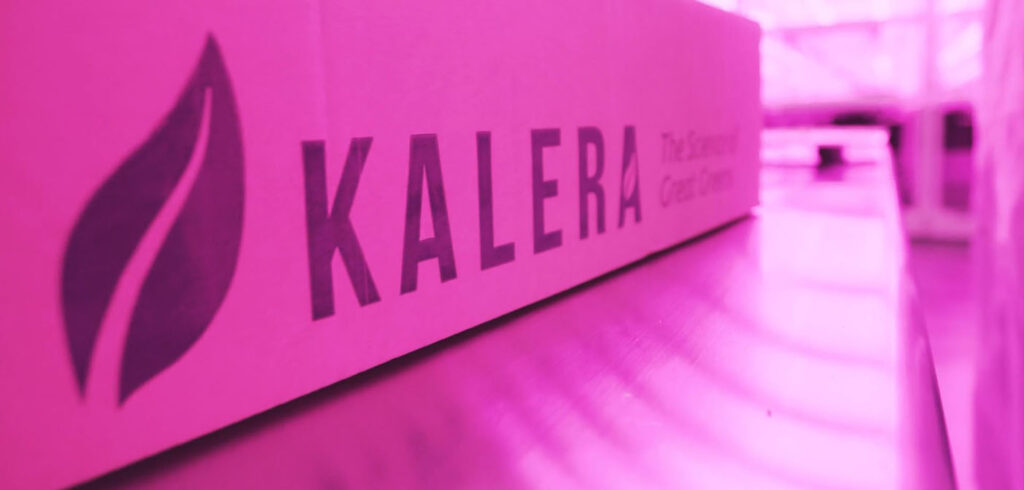Vertical farming company Kalera continues to rapidly expand across the US, announcing new facilities in Columbus, Ohio, and Honolulu, Hawaii. Both are scheduled to open in 2021.
Kalera’s Ohio facility will be ideally placed to provide the Midwest’s grocers, restaurants, theme parks, airports, schools and hospitals with reliable access to clean, safe, nutritious, price-stable, long-lasting vertically grown greens. The facility is expected to create approximately 65 jobs.
The company’s new Hawaiian location, its eighth announced so far, will be the largest vertical farming operation in the island state, providing approximately 60 jobs to the local community upon opening. Growing millions of heads of lettuce per year, the Honolulu facility will provide a local and more sustainable source of fresh, non-GMO, clean, living lettuces and microgreens to retailers, restaurants and other customers. Currently, 90% of Hawaii’s greens are grown on the US mainland and shipped into the state – an expensive 2,500 mile journey that can take over 10 days and require many touchpoints and opportunities for contamination. Kalera’s location within city limits will shorten travel time from days and weeks to hours, preserving nutrients, freshness and flavour.
The two new site announcements follow a slew of recent developments from Kalera, which include the building of new vertical farms in Atlanta, Houston, Denver, and Seattle; the addition of Kim Lopdrup, CEO of Red Lobster, and Chris Logan, investment director of Canica International AG, to its board of directors; and the completion of over US$150 million in fundraising this year.
The company says it utilises cleanroom technology and processes to eliminate the use of chemicals and remove exposure to pathogens. Kalera’s plants grow while consuming 95% less water compared to field farming.
With the addition of its new Ohio and Hawaii sites, Kalera will have eight commercial growing facilities open and operating across the US by the end of next year. The company currently operates two growing facilities in Orlando, and is constructing facilities in Atlanta, Houston, Seattle, and Denver, which will also open in 2021.
“Kalera’s incredibly efficient growing methods allow us to produce higher quality, fresher, and more nutritious greens with yields 300-400 times than that of traditional farming,” explained Daniel Malechuk, Kalera CEO. “Because of this, we’ve been able to maintain conventional pricing and partnerships with large national chains, making our produce affordable and accessible. With our expansion, we’ll only be making our high-quality produce more accessible as we spread across the country.”
“With most of the nation’s greens grown on the West Coast, we’re thrilled to be able to provide Midwest customers year-round access to hyper-local produce,” he continued. “With our centrally located farm facility, we are able to reduce travel times from days and weeks to mere hours. Many regions across the country, including the Midwest, typically only have access to produce that is bred to endure long shipping times, sacrificing flavour and freshness for durability. We’re proud and excited for our Midwest customers to experience the enhanced flavour and nutrition profile of greens that are picked and delivered at the height of freshness.”
“We welcome Kalera’s plans for its first investment in Ohio, which brings an innovative hydroponic agriculture operation and 65 new jobs to the Columbus Region,” responded JobsOhio president and CEO, J.P. Nauseef, in reaction to the new Columbus site. “Demand for Kalera’s non-GMO produce has soared, and Ohio talent at this advanced facility will utilize the latest in vertical hydroponic farming technology to expand its growing US customer base.”
With regard to Kalera’s new Hawaii site, Malechuk noted: “In addition to providing a bounty of fresh, affordable and delicious lettuces and microgreens to restaurants, cruise lines, resorts, hotels, and retailers, Kalera’s Honolulu location will increase food security and resilience on the island. With price inflation impacting almost all produce that reaches Hawaii due to prolonged shipping times, Kalera’s affordably priced products will increase access to a stable supply of healthy food for Hawaiian citizens and tourists.”
“The pandemic has really shown us how important sustainability is to Hawaii’s future… One of my goals for a sustainable Hawaii is to double local food production and a bright spot of the pandemic is that more families are consuming locally produced food and attempting to grow their own food. Every little bit helps as we try to work towards our sustainability goals,” concluded David Ige, Governor of Hawaii. “I believe a mix of traditional farming and new technologies is the wave of the future for agriculture in Hawaii. Innovations like vertical farming help farmers be more productive while using less resources – especially water. That’s why it’s exciting that a company like Kalera is making an investment to bring their operations to Hawaii, where we are sensitive to reducing our impact on the environment. I think technologies such as vertical farming and hydroponics also have appeal to younger people and could help attract more young farmers to the field.”



